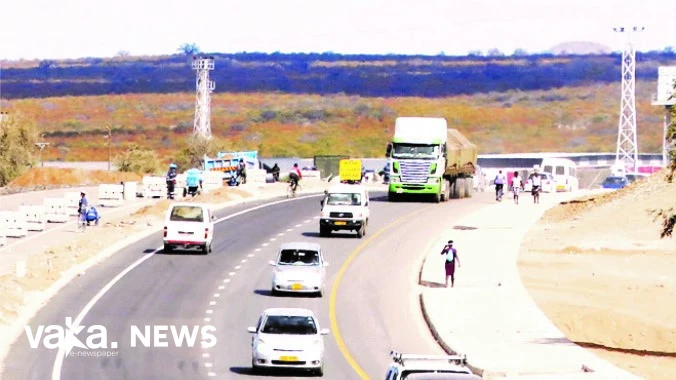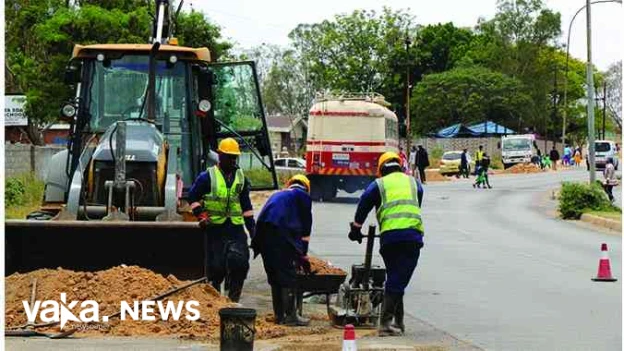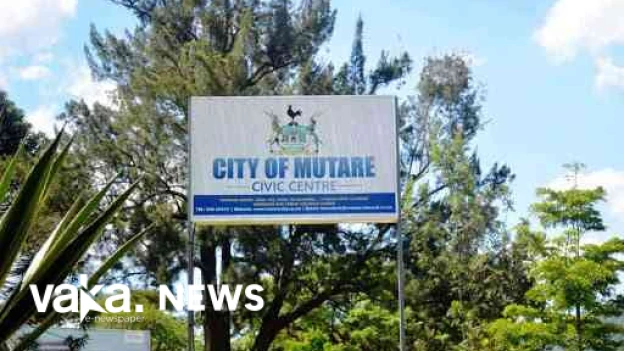EDITORIAL COMMENT: Govt, contractors link makes highway renewal easier
- Category: Construction

- By Dion Kajokoto
Work has now started on the northern section of the main north-south highway through Zimbabwe, the Harare-Chirundu Highway, following the successful near completion of the upgrade and rebuilding of the Beitbridge-Masvingo-Harare leg.
The government is reportedly now confident in the quality of work and value for money that these five Zimbabwean contractors provide. They were also happy to apply because of their established relationship with the government's engineering and financial advisors. These five contractors are the same five that were involved in the southern section. They successfully tendered for the new work and were accepted.
However, this is not a cozy under-the-counter romance. As development progresses, quality control is carried out by government engineers working under the Ministry of Transport and Infrastructural Development, who establish the guidelines for the implementation of their plans.
The Ministry of Finance, Economic Development, and Investment Promotion guarantees that the job is completed in accordance with technical standards and is willing to pay reasonable costs.
All five of the companies are fully aware that their names will not appear on any future contracts if poor quality materials or craftsmanship, or worse, were employed. They are only as good as their last job, just like everyone else.
However, the government has made it plain that it is proud of the way the private sector in Zimbabwe has been developing contractors with the technical and professional know-how, the manpower and equipment needed to use it, and the logistical know-how to complete this kind of work.
Upon assuming power, the Second Republic was left with several disorganized bids from overseas corporations that didn't seem to know how to do the job right and, moreover, demanded absurdly high profit margins.
After deciding to investigate the local market, it discovered that there were likely more capable and reasonably priced enterprises in the area. From there, the relationship was developed.
The allocation of sections of the Harare-Chirundu Highway differs from that of the Beitbridge-Masvingo-Harare Highway, which is an intriguing observation. In the southern part, contractors were given relatively small sections to complete, and after they did so in a satisfactory manner, a new, possibly very distant, short section would be assigned.
The highway has been split into five 67-kilometer portions for the northern construction, with the exception of a small section at the very north end that was just finished as part of a project sponsored by Japan and does not need to be redone.
As a result, contractors would have more accountability, and motorists in Zimbabwe will be able to independently assess the condition of each segment as they compare it. Conversely, it facilitates the contractors' labor and material logistics a little amount.
It was requested of all five that as many jobs as possible be filled by locals. All five stated that they wished to operate in this manner for sensible business reasons, with the majority of their contract workers residing in close proximity to their places of employment, thereby resolving many potential issues related to housing and transportation.
The workers have the option of living at home and walking to work, or at least working to the location several kilometers from their deployment site where they will be picked up by a bus or truck.
One of the businesses pointed out that some skilled employees, including drivers, would also be subject to this local recruiting rules in addition to unskilled and semi-skilled laborers.
The political leadership was determined to ensure that this local hire strategy was followed, but contractors agree that it also helps reduce expenses and prevents issues with human resources. This approach is made much easier to apply by the longer sections of the entire project, which also create opportunities for longer contracts for at least a significant portion of the locally hired workers.
There is one thing in particular that must be remembered. Even though a good rebuild ought to last 25 years without much trouble, regular maintenance is still required. This could just be ensuring that the drainage system keeps working correctly to prevent washaways and water erosion, but it could also entail filling in microscopic cracks before they even resemble little potholes, maintaining clear road markings, and other similar tasks. The Second Republic is dealing with some of the damage to our national road network as a result of years of neglected and postponed maintenance. This indicated that some roads had significantly more severe damage than they would have if they had just worn down.
It is obvious that we cannot allow this issue to recur on what would effectively be a new highway from Beitbridge to Chirundu via Masvingo and Harare. Similarly, we shouldn't allow this to occur on routes where we are attempting to make up for maintenance, like the majority of the Beitbridge-Bulawayo-Victoria Falls Highway. In fact, the maintenance budget will take up a larger and larger portion of the national roads budget as we build more and better roads.
Another issue with having good roads is that people will speed if the law isn't strictly enforced. Public transportation vehicles are equipped with speed limiters since the Transport Ministry is aware of this; however, private automobiles and many smaller commercial vehicles are not.
Thankfully, a great deal of reasonably priced technology is now accessible. Unmanned automatic radar speed traps are widely used in many other nations and will need to be more prevalent on Zimbabwean highways as we continue to upgrade them to high-class routes. Although it seems like the only drawback to the entire highway upgrading is one aspect of road safety, we still need to address it.






